August 9, 2025
Special Children are given countless labels—be it “Mentally Challenged", “Intellectually Disabled", “Differently Abled", "Children with Special Needs", "Brain Damaged", "Mentally Retarded" or “Children of God.” Yet, just as a rose by any other name would smell as sweet, the challenges these children face in India remain mostly unanswered regardless of how we choose to describe them.
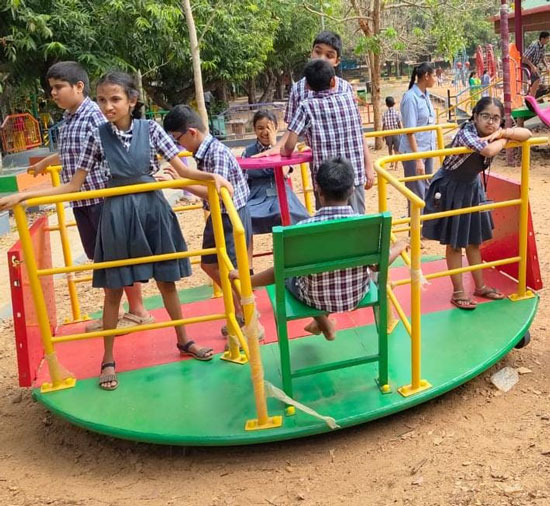
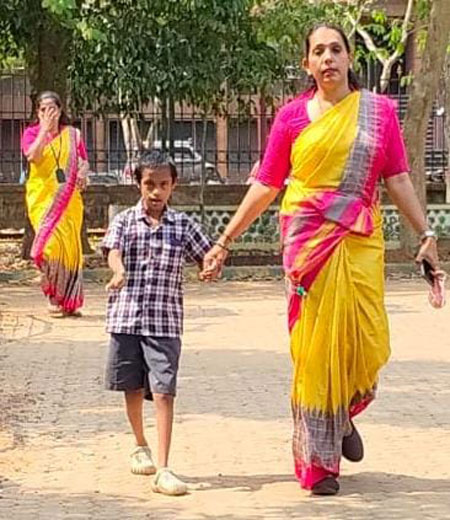
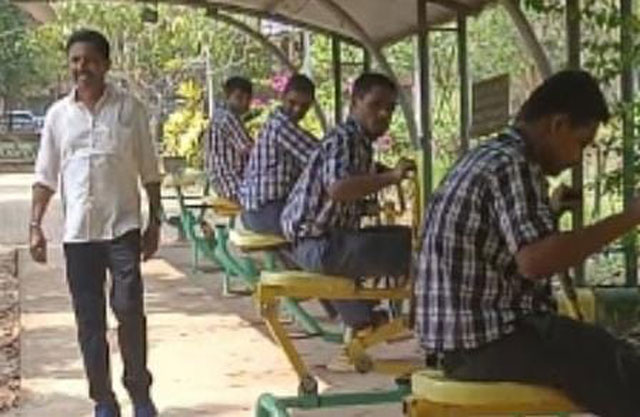
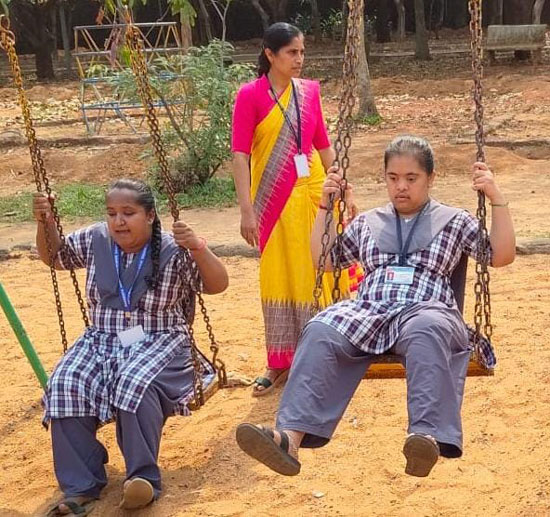
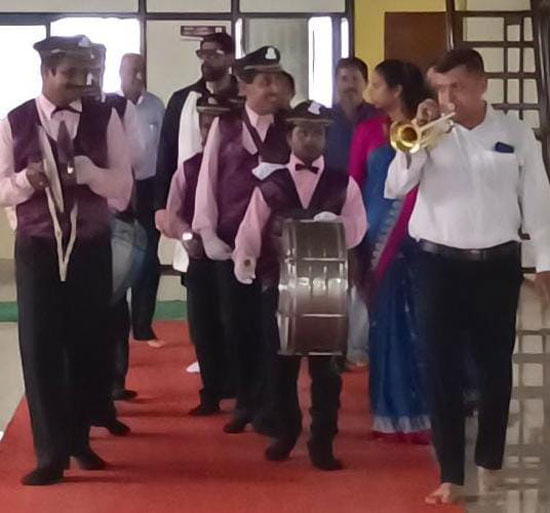
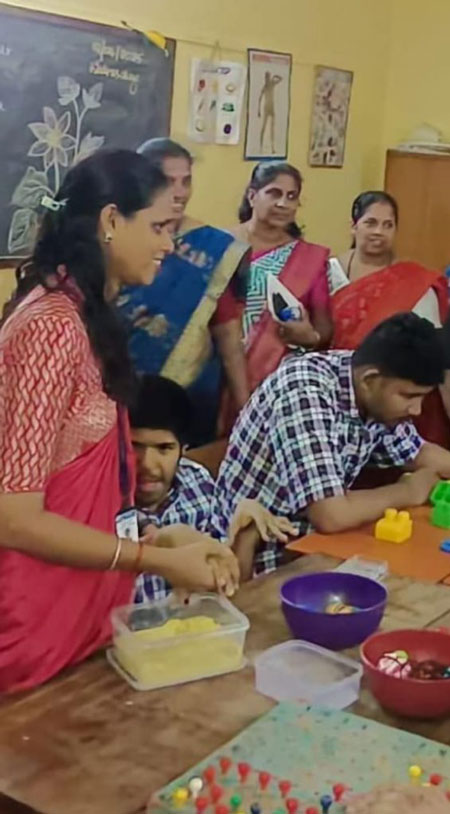
Although facilities exist at the national, state, and local levels, it is still heart-breakingly evident that a comprehensive, fully functional support structure for these children and their families is painfully lacking—especially when compared with the facilities available abroad, where such children are considered as “privileged citizens” and benefit from well-thought-out lifelong care facilities, with structures in place practically benefitting the affected with a comprehensive structure “From Womb To Tomb”
INCOMPLETE DATA AND AN OVERLOOKED POPULATION:
A serious concern is the lack of accurate data on the number of children (and adults) with mental or intellectual disabilities. The Indian census does not distinguish between those who are physically disabled and those who are mentally disabled; consequently, it is impossible to ascertain the exact number of individuals who need specialised care.
The last nationwide census was conducted in 2011, placing India’s population at 1.21 billion. By 2025, estimates suggest that figure may have risen to around 1.45 billion—a substantial increase. Naturally, the number of children and adults with special needs has also likely grown, yet we have no precise records of how many require vital support and services, specially category 3 of Mentally Challenged Children...which is the Personal 24x7 Caretaking category.
A PERSONAL GLIMPSE:
Prakash, Sonia and Rahul.
To illustrate the dire need for more comprehensive care for Mentally Challenged Children and in particular the children belonging to Category 3 (who require Personal Caretakers 24x7), consider the fictional case of Prakash and Sonia, who were blessed with a baby boy in 2012, just over a year after their marriage. Their joy was soon tempered by the gradual realisation that Rahul's development was delayed and his behaviour and physical movements increasingly difficult to comprehend.
In 2015, they were informed by the doctor after a series of tests that Rahul had a form of brain damage which was incurable, and that he would require personal support in everything he did for the rest of his life. The shock of this diagnosis reshaped their lives which changed completely overnight. Suddenly, everything revolved around Rahul: his daily needs, personal requirements, his communication barriers, and his ongoing therapies.
Parenting a child with special needs who has to be helped and supported in everything that he has to do, can place immense strain on family life, marital relationships, health, and careers. Prakash and Sonia’s ability to focus on their work was severely compromised, as was their hope for an ordinary family life.
Although they eventually learned to cope, the most pressing question remains unanswered: Who will care for Rahul after they are gone? Who will look after him ? Even if they manage to save and invest on his behalf, Rahul will always require dedicated personal support and someone to help him navigate everyday tasks including the most private and personal.
In India, where official records do not properly account for children and adults like Rahul, there is no substantial, unified system to ensure they will be cared for in later life after the death of their parents.
Amidst all the confusion of trying to grapple with what life has thrown at them, TWO BIG questions keep haunting them day and night.
First one is WHY ME? Unfortunately there is no answer to this question however hard you may try or whoever you may consult....only God can answer that until you meet Him face to face. Till then they will have to live with it.
The Second one AFTER ME? is something for which, there are no easy solutions and they would have to depend on their support system, society, Government, charitable institutions and all those entities who are actively involved in social service.
Where will the answer come from?
A Collective Responsibility-Areas for Improvement:
Over the years, I have encountered parents, caregivers, and professionals who share similar worries and aspirations. Below is a condensed list of suggested measures spanning the Government, the corporate sector, medical and professional bodies, and the community at large. It is my earnest hope that, together, we can begin addressing these concerns more effectively.
1. THE GOVERNMENT-RIGHT TO SPECIAL EDUCATION
1. Legislation and Laws:
Just as basic education is recognised as a fundamental right for every Indian child, Special Education must be similarly enshrined for every child with special needs. Although legislation such as the NationalTrust Act (1999) and the Rights of Persons with Disabilities (RPwD) Act (2016) exist, implementation requires urgent reinforcement.
2. Integrated Schooling:
Mainstream schools should make every effort to integrate children with special needs, wherever feasible, or set up parallel special-education systems within their institutions. Early, consistent exposure will help typical children better understand and accept their peers with special needs, and in turn, help those with special needs acclimatise to society.
3. Enhancement of Special Schools and Infrastructure:
The number and quality of special schools must be vastly improved, complete with residential facilities to support children and adults throughout their lives—from “womb to tomb.” Having a safe, nurturing environment that addresses varied and evolving needs is paramount.
2. THE CORPORATE SECTOR
1. Job Reservations and CSR Initiatives:
The existing job-reservation quota for people with disabilities in government services should be expanded to include those with intellectual disabilities. Although productivity in certain roles may be limited, such measures would significantly ease the burden on these individuals and their families. Alternatively, companies might allocate part of their Corporate Social Responsibility (CSR) funds to support individuals with special needs or the institutions that serve them.
2. Support for Employees with Special-Needs Children:
Employers can dramatically enhance productivity by recognising the additional challenges parents face. Providing sponsored therapies, educational assistance, and access to residential services for employees’ children with special needs could offer relief to countless families.
3. Parenting Workshops:
Corporate-sponsored workshops on managing the stress and complexities of raising children with special needs would benefit employees and potentially the wider community.
Government health departments could extend similar workshops in the unorganised sector.
3. MEDICAL AND PROFESSIONAL SUPPORT
1. Counselling and Psycho-Social Services:
Parents of children with special needs often require professional guidance—psychological, financial, and emotional—yet affordable, regulated counselling services remain sparse outside major cities. This gap must be bridged if families are to secure a better future for their children and themselves.
2. Medical Research and Prevention:
The medical community must invest in more robust research aimed at preventing or reducing the incidence of certain disabilities. Advances in genetics could potentially ensure fewer children are born with preventable impairments, although such scientific progress should always be pursued with caution and ethical considerations.
4. ROLE OF THE COMMUNITY
1. Parent Support Groups:
While such groups are prevalent abroad, they are conspicuously rare in India. Non-Governmental Organisations (NGOs) could facilitate these networks, allowing parents to share experiences, resources, and guidance.
2. Attitudinal Shift:
Society at large must adopt a more inclusive outlook. Rather than pity, children with special needs deserve respect and acceptance. Integrating them into community events and daily life from an early age fosters understanding and compassion.
3. Trained Care Professionals:
The scarcity of skilled caregivers—nurses, domestic helpers, and others trained to work with special-needs individuals—is a pressing concern. Organisations should offer education and certification programmes to build a workforce of compassionate, capable helpers who see this work as both a profession and a calling.
5. MEDIA ENGAGEMENT
1. Media Coverage: Media platforms can be powerful agents for change. Regular coverage and discussions of special-needs issues would raise public awareness, encourage empathy, and shine a spotlight on policy gaps and success stories alike.
2. Crimes Reporting: All the crimes perpetrated against the Differently Abled young children specially girls, should be highlighted and pursued till the culprits are caught and justice is given to the victims.
THE URGENT BURNING ISSUE OF TODAY:
"AFTER ME "
Long-Term/Life Time Care :
The question that troubles every parent of a child with special needs and more specially the parents of Category 3 children who cannot take basic care of themselves and the parents were taking care of their personal daily living needs like toileting, bathing, teeth brushing, eating, dressing etc. What happens when I am no longer here to care for them? Who will take care of them ? Where do I admit/enrol them ? It is imperative that the Government, NGOs, and private organisations collaborate to establish residential and day-care facilities that cater to the long-term welfare of adults with special needs, more importantly for the Category 3 Adults who would be requiring a 24x7 personal caretaker.
Whether for short-term respite or permanent care, such homes would offer stability and peace of mind for families. In essence, India requires the equivalent of “old-age homes” specifically designed for this community—a place where they are not merely housed but meaningfully engaged, protected, valued and taken care of personally.
A HOPEFUL VISION
Addressing these challenges calls for coordinated efforts from all sectors of society. While there is undoubtedly much work to be done, raising awareness is the first step towards finding lasting solutions. I sincerely hope that, in time, each concern outlined here will be addressed in depth, easing the burden on individuals with special needs and their families, most importantly the category 3 segment. There are not many options available for Category 3 -Life Time Home, because running the home would entail extra commitment, dedication and selfless personal service which not many are willing to undertake because of the complexities involved.
Ultimately, the measure of a society’s progress lies in its capacity for empathy, inclusivity, and care for those most in need-and it is past the time that we rise to this challenging task.
I sincerely hope and pray that this article, specially the last part, will touch few individuals galvanising them to take up the challenge and thus becoming a Ray of Hope for the worried parents of the Differently Abled specially the Category 3 Adults.